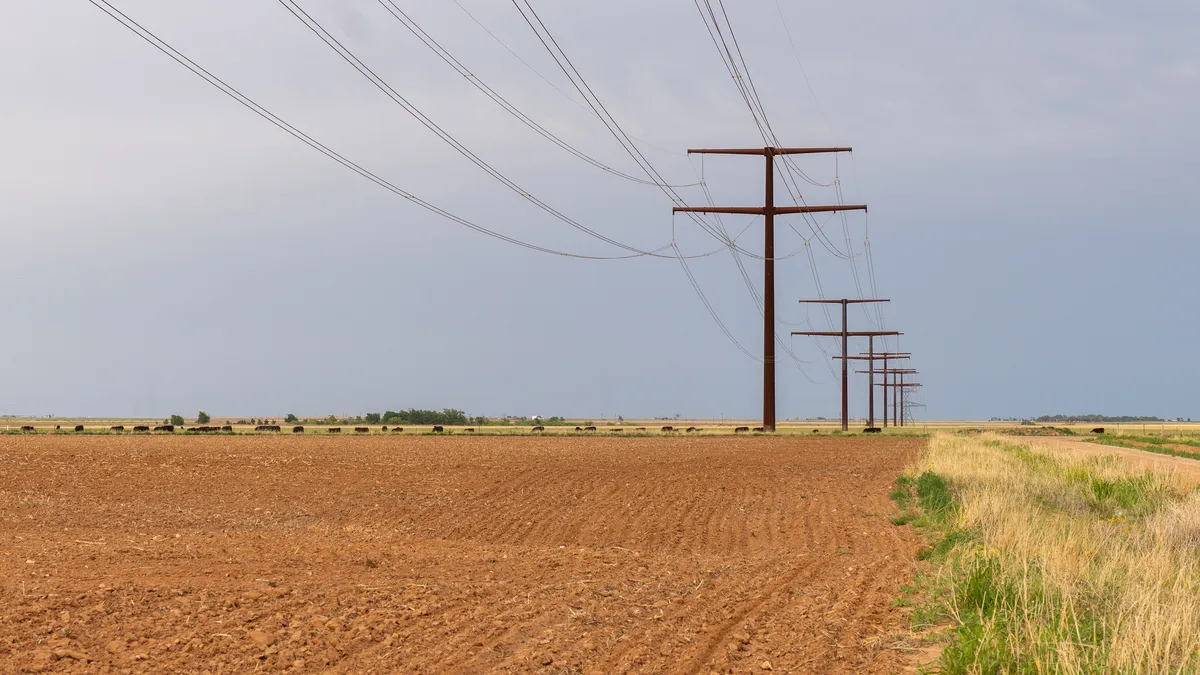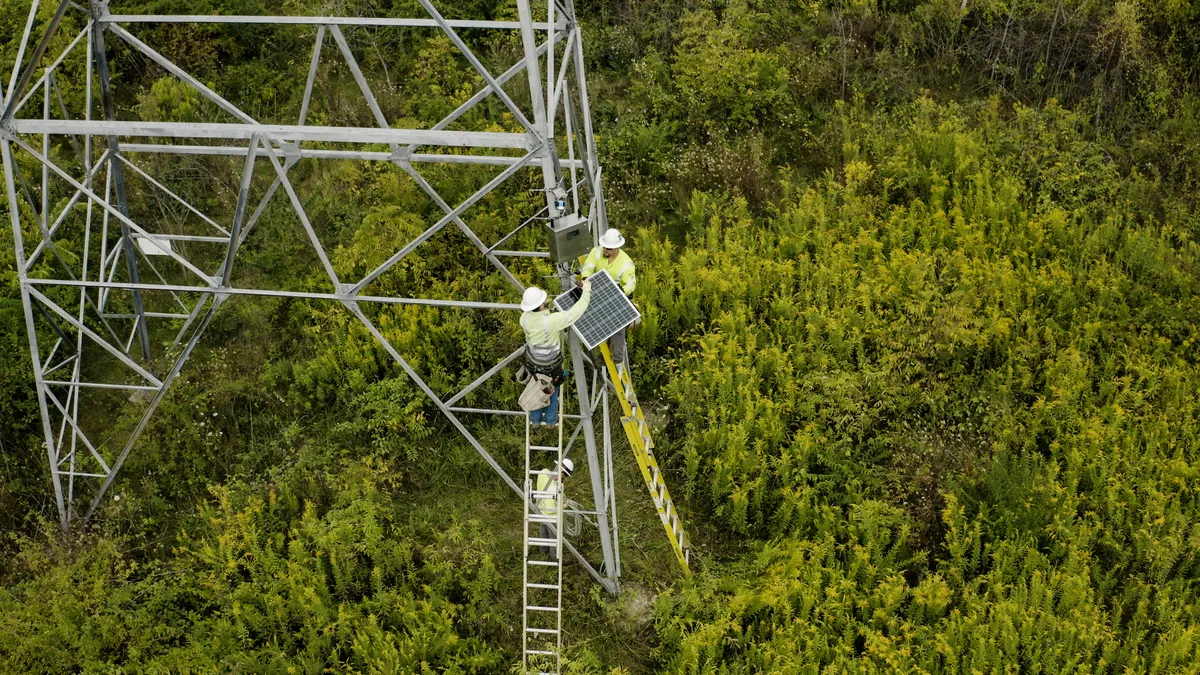The following is a guest post written by Ray Gifford. Gifford is the former Chairman of the Colorado Public Utilities Commission from 1999-2003, and is currently the Managing Partner in Wilkinson Barker Knauer LLP’s Denver office.
Trust, but verify, President Reagan liked to say during arms-control negotiations with the Soviet Union. Unfortunately, some single-issue advocacy groups embroiled in disputes at state and federal regulatory commissions have added a twist: Distrust, then vilify.
For decades, public interest organizations participated in the regulatory process, often as allies of electric consumers and supporters of utility regulation. Strategies and tactics have changed. In the states and in Washington, new self-styled watchdog groups have switched to smear campaigns featuring full-throttle assaults on the integrity of public utility commissioners that can only be dubbed “green McCarthyism.”
The incendiary rhetoric has often emerged during the contentious battles at utility commissions over solar net metering and resource planning, typically in states where solar is booming. State regulators are struggling to devise rate systems that encourage solar energy without imposing additional costs on middle and lower class consumers. Self-proclaimed watchdog groups have ignored the regulatory process, then disparaged the results and impugned the ethics of individual commissioners.
Some have demanded the recusal of commissioners and the end of democratic elections of utility commissioners. Others have attempted to connect alleged dots of influence between regulators and utilities. “Utilities nationwide have captured Public Utility Commissions, in whole or in part,” claimed one group, the Checks and Balances Project. Yet the CBP — a group supposedly dedicated to greater regulatory transparency — failed to reveal that part of its funding comes indirectly from the nation’s largest developer of solar rooftop installations, Solar City.
Campaigns aimed at discrediting regulators and denigrating the process are unfair and unwelcome. For decades, the regulatory process has survived—not without warts, but with general success. Nobody condones corruption or supports unethical behavior that games the regulatory process.
Regulatory proceedings allow all parties to be heard and fairly present their case by retaining legal counsel, generating mountains of evidence, and producing expert witnesses. Losers can challenge regulatory decisions in court. In many states, for example, utilities, regulators and consumer groups battled in the 1980’s and 90’s over inclusion of cost overruns of nuclear plants. These high-stakes battles were fiercely contentious and involved complex issues.
Fights over cost allocation, joint and common cost problems and interconnection fees are inherently difficult and fraught. That the answers to these questions can be indeterminate, and that reasonable people can disagree, does not mean that a party or regulator with a different answer is venal or corrupt. It means there are a number of reasonable outcomes that require judgment.
Instead, recusal has become the weapon of choice for some groups. In New Mexico, New Energy Economy, a local clean energy group, sought the recusal of four utility regulators from ruling on a utility’s effort to expand a coal-powered power plant. NEE alleged a major utility “tainted” the regulatory proceeding by its “nefarious contact” with the four commissioners, campaign contributions to regulators, and alleged ex parte contacts.
In Nevada, even the governor has been targeted by groups outraged by net metering decisions that didn’t go their way. After the Public Utility Commission changed the way it compensated consumers for solar sales, The Alliance for Solar Choice (TASC) Co-chairman Bryan Miller said in a statement that "it's sad that Sandoval is lying to Nevadans yet again. But the truth will soon come out." Vituperative language as regulatory advocacy may be satisfying to the speaker and the amen-corner on the same side, but it degrades the deliberative process and persuades no one.
Even Washington, D.C., regulators are not immune from attacks. Protesters disgruntled over Federal Energy Regulatory Commission decisions have interrupted meetings and even been forcibly removed from hearing rooms. FERC Chairman Norman Bay cited the importance of the regulatory process and urged the protesters to participate in docketed proceedings. “We welcome your views. But interrupting these open meetings does not help your cause. It’s not even helpful in trying to get information to us, because they technically represent ex parte contacts.”
Still, Arizona is probably ground zero for unremitting attacks on utility commissioners. TASC and the CBP have alleged improper conduct by Arizona Corporation Commission member Bob Stump and utility executives. These groups, plus some solar companies and two ex-ACC members, want Stump and two other commissioners to recuse themselves from ruling on solar access fees because of alleged campaign support received directly or indirectly from the utility or its parent company.
Several refused. Commissioner Stump offered a blunt response. “Dark money fringe groups” are being used to attack those who “so much as suggest that utility ownership of rooftop solar might be a fruitful idea worth investigating,” Stump told Utility Dive in December.
The good news is a backlash suggests some attacks have gone too far. SolarCity, for example, has severed its ties with TASC – while finally disclosing it is a funding source for CBP. In Hawaii, former Public Utility Commission Chair Mina Morita, a solar supporter, warned TASC the industry’s success won’t result from “political decisions rooted in negative campaigning.” In Maine, the assistant majority leader of the House, another solar ally, criticized TASC online ads “that mislead people who have limited information.”
These are welcome developments. It’s time to step back from the invective that elevates mudslinging to an art form and threatens to undermine the nation’s utility regulatory system. Let regulators do the job they were elected or appointed to do. Consumers are best served when all interested parties participate in an open regulatory process that encourages debate, tolerates controversy and provides numerous opportunities for appeal. Instilling distrust in the utility process benefits nobody.





















